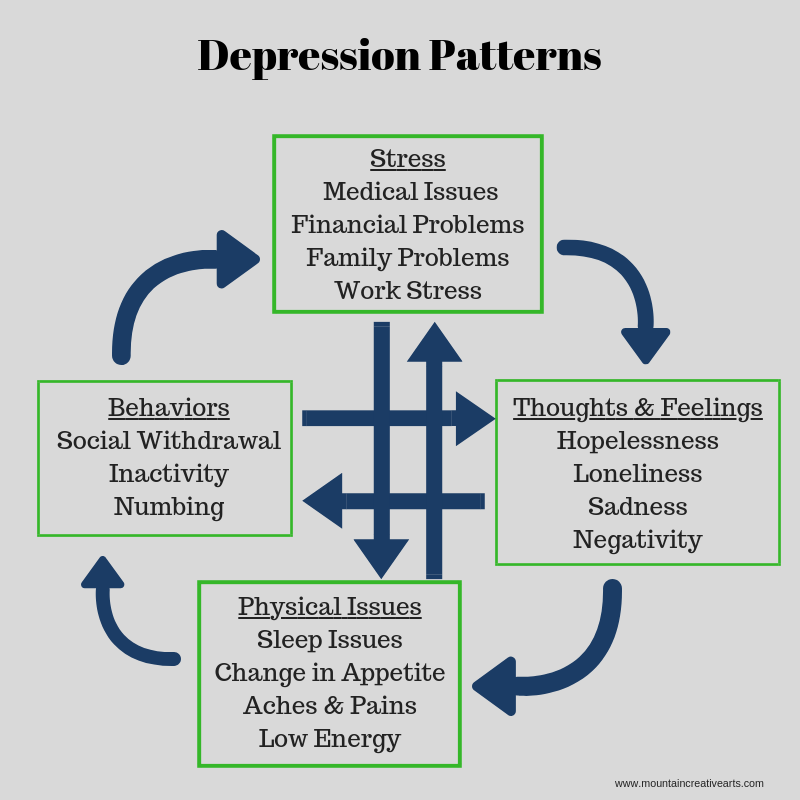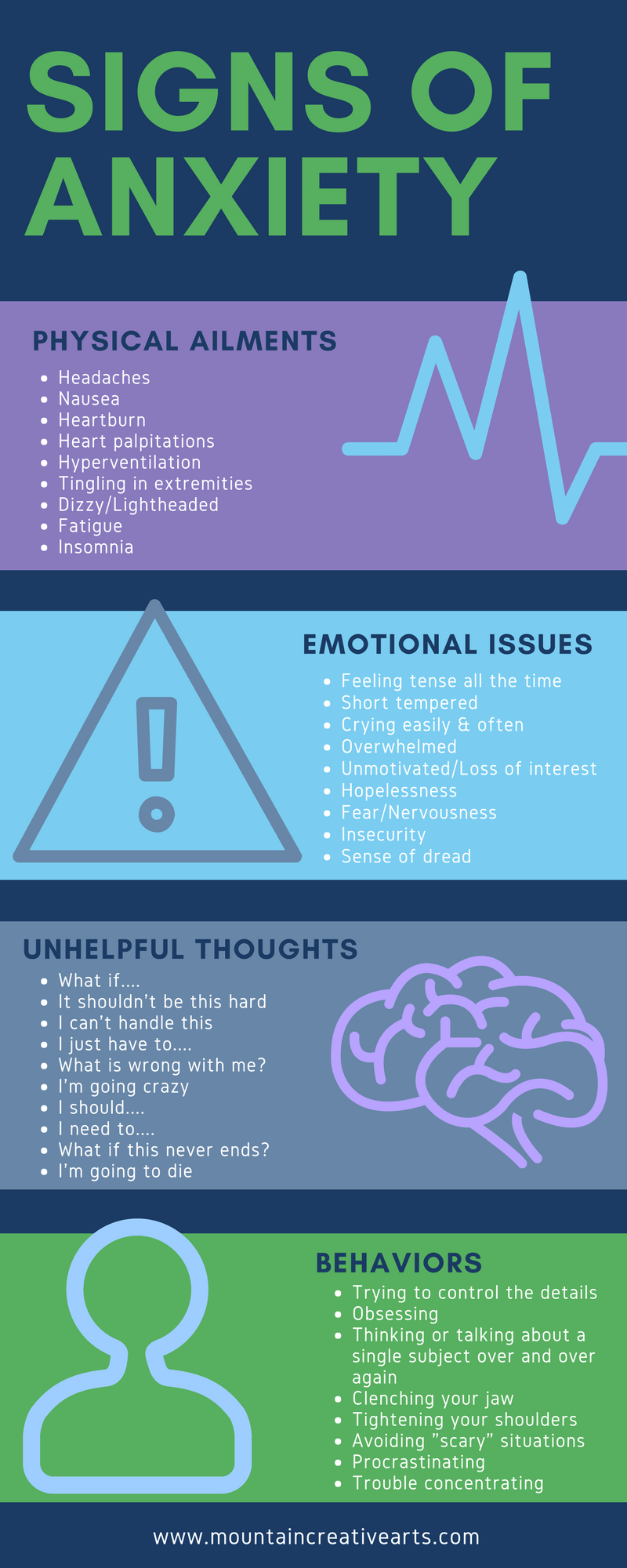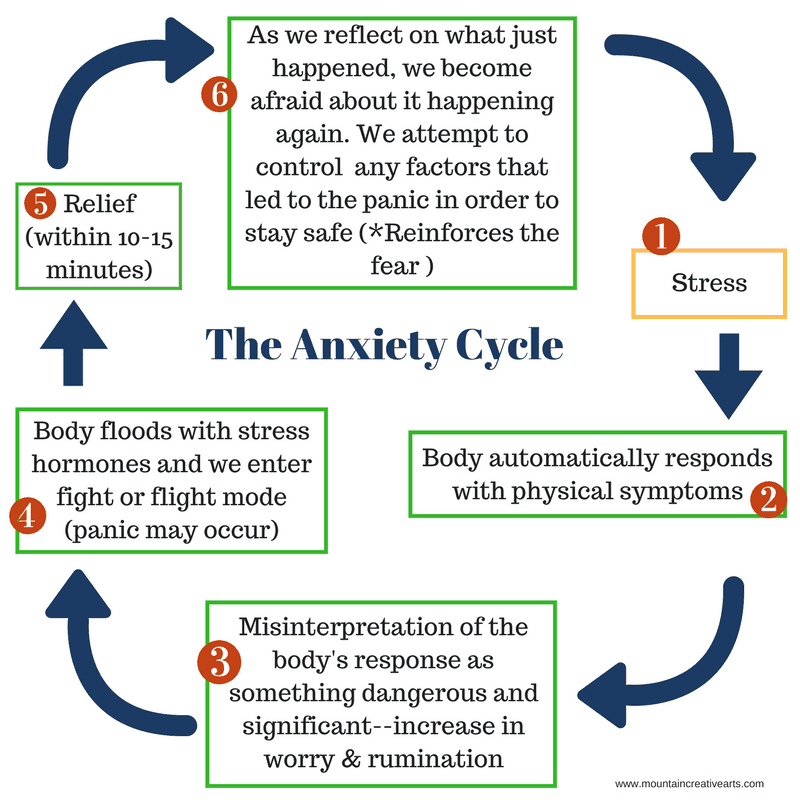Anxiety and Depression Don’t Have to Rule Your Life Anymore
There is Hope for Something Else
“The second journey begins when we cannot live the afternoon of life according to the morning program.” ~ Brennan Manning
Past stressful experiences can trick your brain into operating from “fight, flight, or freeze mode” at the slightest trigger. Changing the way your brain responds to stress involves changing your thinking patterns and how your body reacts to your thoughts and feelings. You’ll learn some basic information about anxiety to help make it less mysterious and scary; you’ll practice how to be in the moment rather than thinking about the future; and you’ll learn and practice different techniques to release the stress stored in your body and help you get through moments of panic. Most importantly, we’ll take a look at your current lifestyle and find realistic ways to make the changes needed to plug what you’re learning in session into your day-to-day routine.
Signs of Anxiety
You’re not broken or crazy if you’re experiencing these symptoms. Anxiety is a normal response to your body’s experience of stress. Sometimes this stress is real and right in front of you, and sometimes it’s imagined–either memories of something in the past or thoughts of something you fear may happen in the future. Your body may react the same regardless of the source, so one of our first tasks will be practicing ways to stay in the present moment.
The Anxiety Cycle
You may have tried everything to get rid of your anxiety. It’s important to remember that anxiety will never completely go away. It’s a normal emotion that every human feels. When you experience stress, anxiety tricks you into using methods that maintain your symptoms. You’ll find that accepting and even embracing anxiety will bring more relief than resisting it or trying to remove it from your life.
Relationship between Anxiety and Depression
 Anxiety and depression are closely linked and may occur at the same time. Like anxiety, depression affects our thoughts, feelings, and behaviors. Both anxiety and depression respond to stress in a similar way: Stress triggers a flight or fight response to a threat, with anger and rage at one pole (fight) and depression and anxiety at the other pole (flight).
Anxiety and depression are closely linked and may occur at the same time. Like anxiety, depression affects our thoughts, feelings, and behaviors. Both anxiety and depression respond to stress in a similar way: Stress triggers a flight or fight response to a threat, with anger and rage at one pole (fight) and depression and anxiety at the other pole (flight).
Both anxiety and depression involve the experience of being overwhelmed. However, depression is a withdrawal response, and there are often other emotions underneath the depression. When anxious, our thoughts may be fear-laden (“what if?!”). When depressed, our thoughts may reflect discouragement, hopelessness or despair. People suffering from anxiety may begin to experience significant depression when their anxiety worsens. People struggling with serious depression may become anxious when their thoughts increasingly focus on fears about their future.

I want you to know that you’re not alone, and you don’t have to do this alone. Contact me to schedule your free, in-person, 30 minute consultation, and I’ll guide you through the process.


